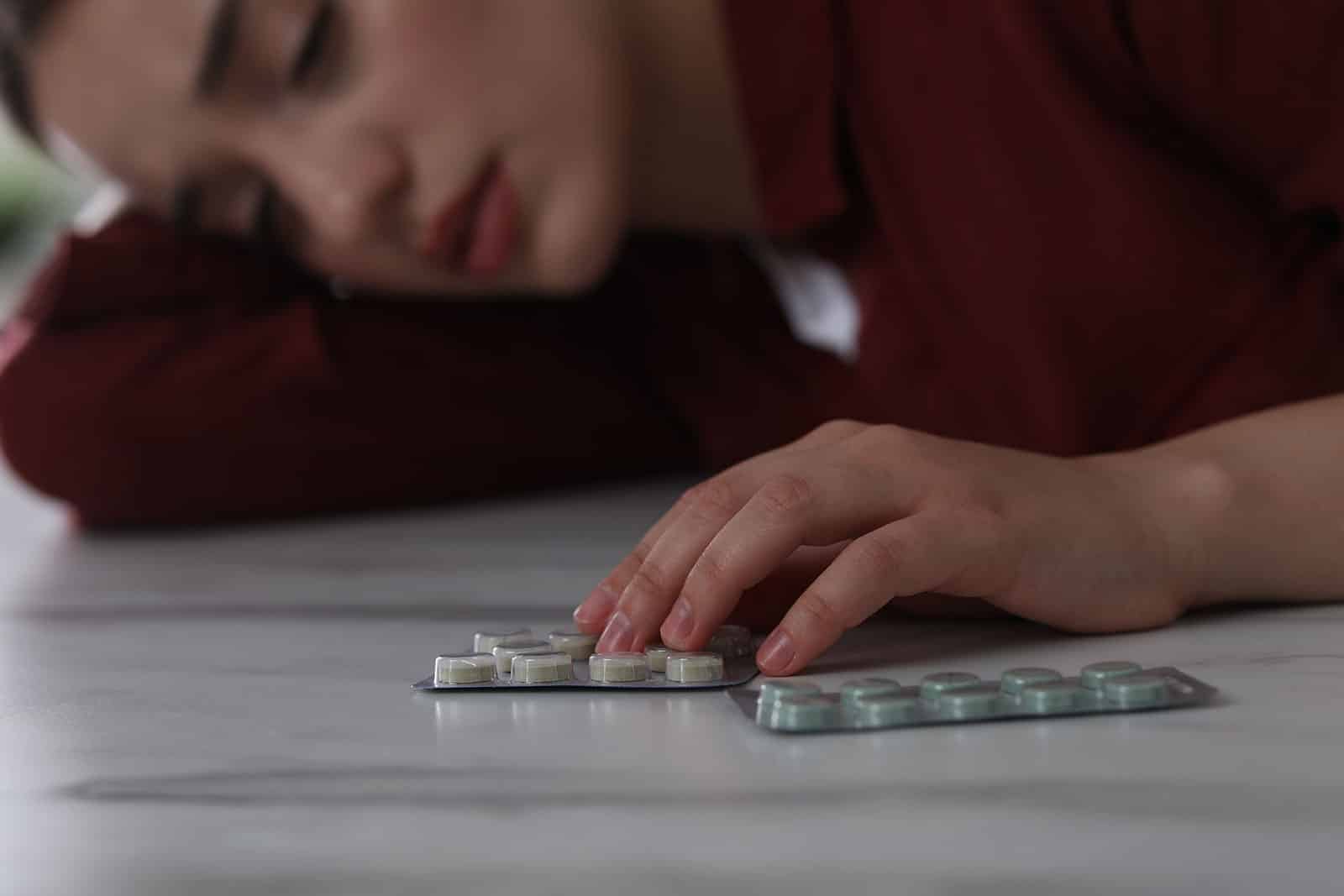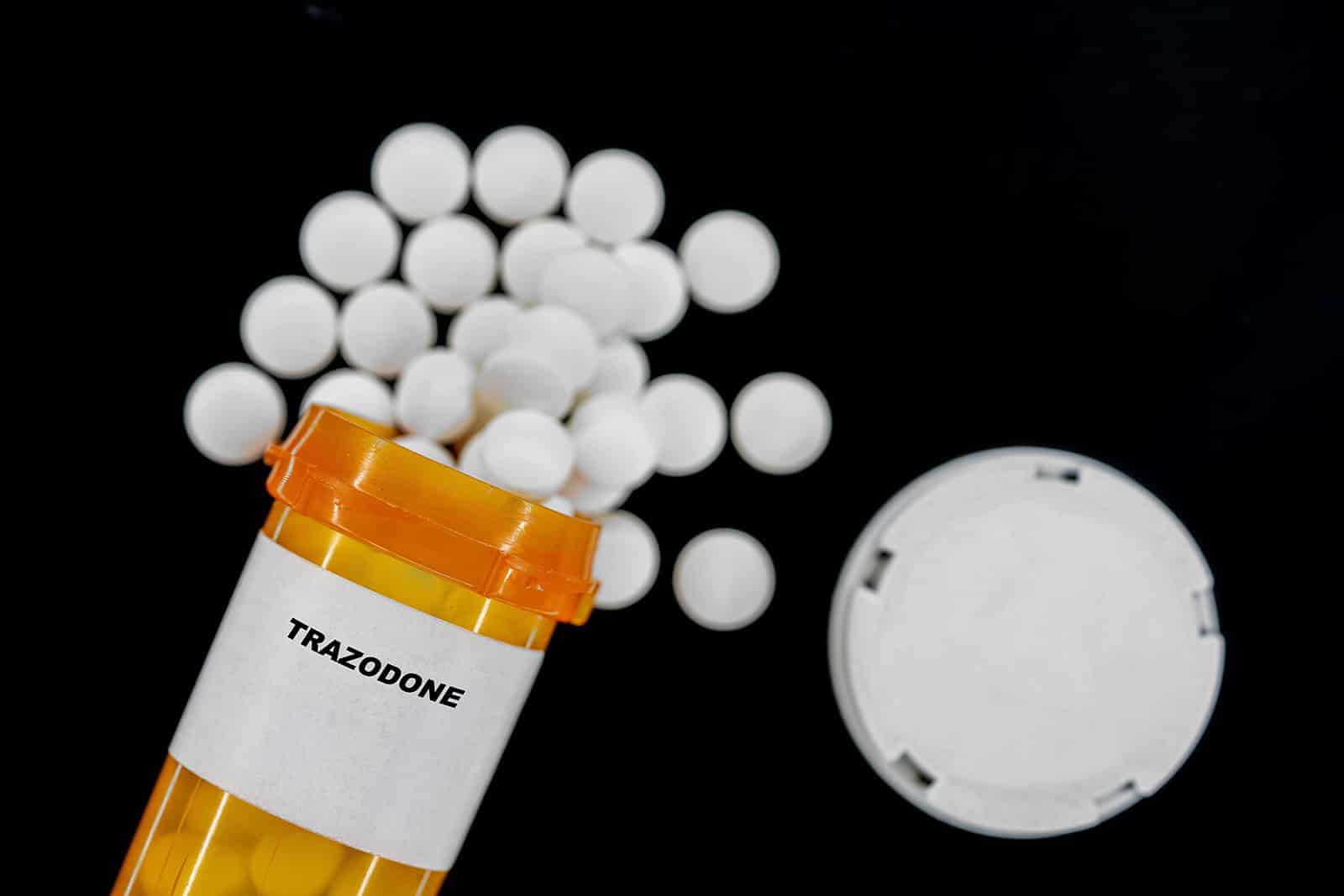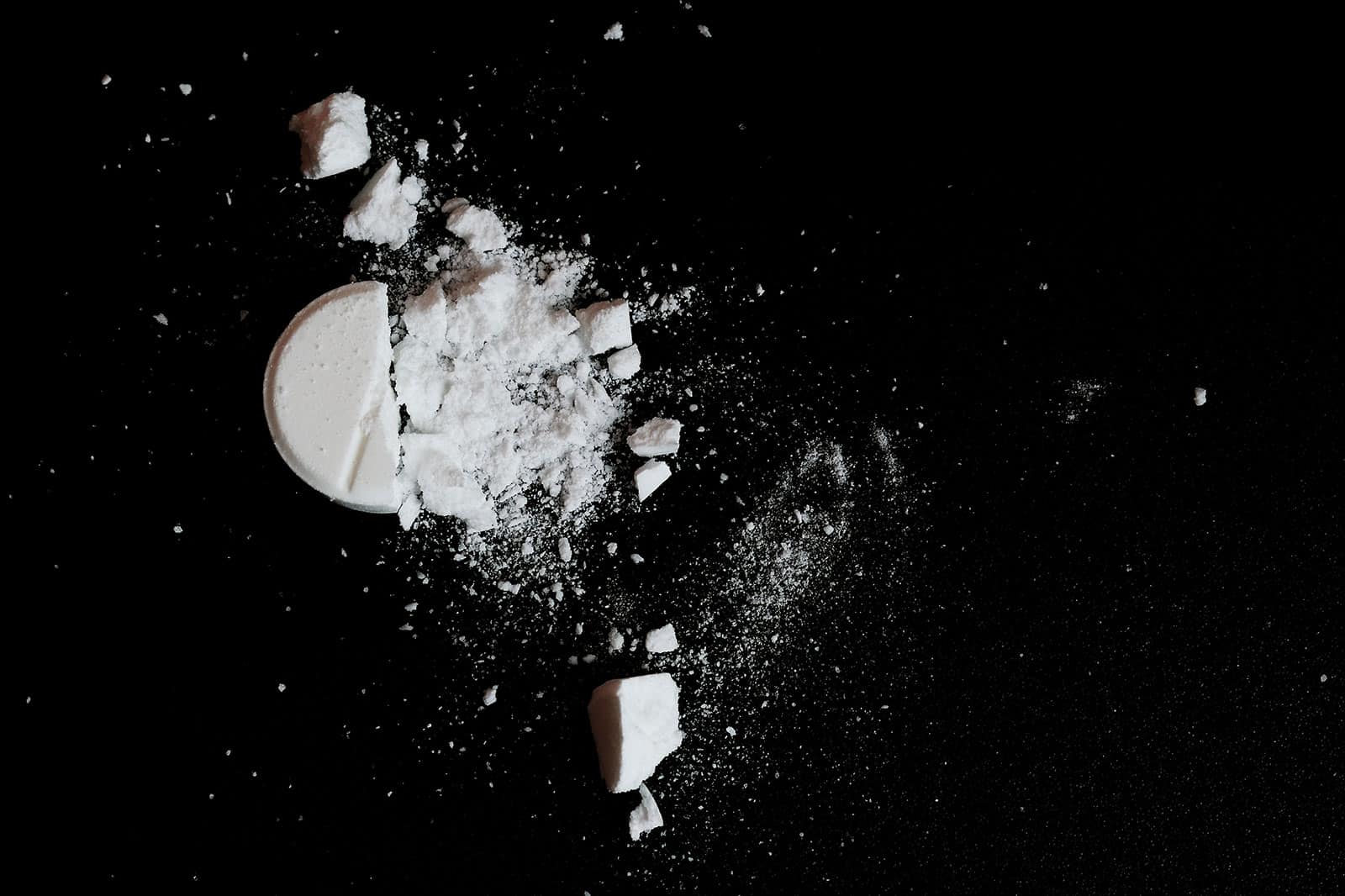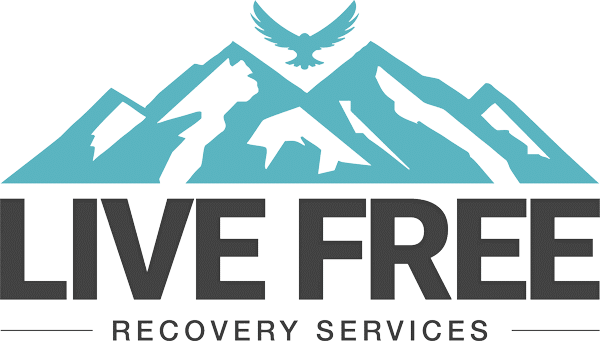Substance abuse is a chronic and pervasive problem in the U.S. That’s the takeaway from several studies, including one from the Substance Abuse and Mental Health Services Administration (SAMHSA), which revealed that as many as 48 million Americans are living with a substance use disorder (SUD) of some kind. When most people think of such disorders, the first thing that usually comes to mind is an addiction to street-level drugs.
While that is the case for many people struggling with a substance use disorder, many also have a problem with prescription-based medications, which are readily available at most pharmacies to anyone with a valid prescription from a licensed physician. That’s according to data made public by the National Center for Drug Abuse Statistics. It revealed that over 18% of Americans aged 12 and older have purposely misused or outright abused a prescription drug at least once in their lifetime. And there are many reasons why these individuals spiraled down this path, the data further notes.

Table of Contents
Why Do Some People Misuse and Abuse Prescription Drugs?
There is no singular answer to the question of why some people misuse and abuse prescription-based medications. They are as varied as they are striking. Before detailing how much so, we should take a moment to discuss the difference between misusing and abusing a prescription medication. If someone takes medication in a manner not consistent with the original prescription instructions, it is considered drug misuse. Examples of this, according to MedlinePlus, an online health information resource and part of the U.S. National Library of Medicine, include the following:
- Consuming a higher dose of medication than prescribed
- Crushing, snorting, injecting, or taking medication in ways not consistent with a physician’s instructions or drug manufacturer’s recommendations
- Taking medication prescribed to someone else
- Taking medication solely to achieve a euphoric high
When someone misuses prescription medications in any of the previously mentioned ways, they generally become addicted to them. By definition, addiction is an inability to stop using a substance despite the potential for physical or psychological harm. That said, most people don’t set out to misuse or abuse prescription drugs. Most who engage in either practice initially started taking medication prescribed to them to combat pain, improve focus, combat insomnia, ease mental health symptoms, or some other legitimate therapeutic purpose. Somewhere along the way, however, things spiraled out of control.
In many cases, people develop a tolerance after being on certain prescription medications for a long time. As a result, they have to consume higher doses to derive the same effects they previously achieved with lower doses. And that can quickly set the stage for addiction. Genetics, environmental factors, and family history can also make some people more susceptible to addiction. It is also worth noting that some prescription medications are more addictive than others. For example, some can trigger chemical changes in the brain that make addiction almost inevitable. One such medication is trazodone.

What Everyone Needs to Know about Trazodone
For those who have never taken it or are otherwise unfamiliar with trazodone, it is a prescription-based antidepressant medication commonly prescribed to treat depression, anxiety, or both. It also helps with insomnia, low mood, and poor concentration. The drug works by increasing the production of two neurotransmitters in the brain: serotonin and noradrenaline. Available data shows that trazodone is available in tablet, capsule, and liquid form. The tablets come in 50 mg, 100 mg, and 150 mg strengths. Capsules are available in 50 mg and 100 mg strengths. The liquid formulation has 10mg or 20mg of trazodone per milliliter. Generic trazodone is available under the following brand names:
- Desyrel
- Desyrel Dividose
- Oleptro
- Trazodone D
The starting dose of trazodone commonly prescribed to treat depression is between 100 mg and 150 mg per day. For anxiety, it is usually 75 mg per day. While trazodone is effective in treating depression, anxiety, insomnia, and the like, it is not without downsides. The drug can trigger several side effects, and those side effects can become even more varied and more intense when someone misuses or abuses it. Some of the more notable of these include the following:
- Abdominal pain
- An inability to concentrate or focus
- Anxiety
- Constipation
- Diarrhea
- Dizziness and fainting
- Headaches
- Low libido
- Nausea and vomiting
- Paresthesia
- Priapism
- Seizures
- Tachycardia
- Tinnitus
- Unintentional weight gain or weight loss
The Consequences of Snorting Trazodone
Along with upping the intensity and the number of side effects one would be exposed to, snorting trazodone can give rise to numerous health problems and may even prove fatal. Firstly, it can wreak havoc on nasal passages. Multiple studies have found that snorting trazodone can increase the chances of developing a perforated septum, a hole in the nasal septum. So that everyone is on the same page, the nasal septum is the thin wall of cartilage and bone that divides the nose into two air passages. Damaged nasal membranes, sinus irritation and infections, and throat irritation can also stem from snorting trazodone.
Second, some people who snort trazodone develop subcutaneous emphysema. For those unfamiliar with this medical condition, subcutaneous emphysema occurs when air penetrates tissues under the skin. In addition to subcutaneous emphysema, some people develop pneumomediastinum when they snort trazodone. This condition is characterized by air being trapped within the chest cavity but outside the lungs. Both subcutaneous emphysema and pneumomediastinum can put individuals at risk of developing the following life-threatening conditions:
- A ruptured trachea
- Compressed airways
- Pneumopericardium
- Tearing of the esophagus

How Snorting Trazodone Can Lead to an Overdose
Snorting trazodone can increase one’s chances of overdosing, according to some studies. The long and short of it is snorting trazadone changes how much of the substance gets delivered to the brain, the speed of the delivery, and the intensity of the drug’s effects. These events can trigger an overdose by forcing an uptick in the production of serotonin, a chemical messenger that affects well-being and happiness. When there is too much serotonin in the body, it can lead to serotonin syndrome. Symptoms of serotonin syndrome include the following:
- Agitation or restlessness
- Confusion
- Diarrhea
- Fever
- High blood pressure
- Irregular heartbeat
- Rapid heart rate
- Seizures
- Syncope
- Twitching muscles
It is also worth noting that combining alcohol, barbiturates, or sedatives, such as Valium and Ativan, with trazodone can lead to a fatal overdose.
The Black Box Warning for Trazodone
For those who have never heard of a black box warning, it is a safety warning that the Food and Drug Administration (FDA) issues to alert the public of the risk associated with a particular drug. Such a warning comes with every bottle of trazodone purchased at a U.S. pharmacy. And those warnings address contraindications associated with trazodone and monoamine oxidase inhibitors (MAOIs), such as selegiline, isocarboxazid, phenelzine, and tranylcypromine. It states that combining trazodone with an MAOI drug can significantly heighten the risk of serotonin syndrome. The warning further notes that taking trazodone, even by itself, can increase the risk of suffering from the following:
- Angle-closure glaucoma
- Cognitive and motor impairment
- Increased risk of bleeding when taken with non-steroidal anti-inflammatory drugs (NSAIDs) and other antiplatelet drugs
- Mania or hypomania
Trazodone: Dependence vs. Addiction
Despite often being used interchangeably, addiction and dependence are not the same. According to The Lancet, a weekly peer-reviewed general medical journal, dependence refers to the physical adaptation to a substance, typically characterized by increased tolerance over time. Dependence in and of itself is not harmful, but it is, in many cases, a precursor to addiction. What makes addiction different from dependence is that it triggers an intense physiological and psychological response when someone abruptly stops taking a substance that their body has grown accustomed to. Generally speaking, addiction goes hand in hand with temptation, cravings, loss of control, and compulsive behavior driven by a strong desire to obtain and use drugs. That all said, trazodone is not addictive in that abruptly quitting it usually doesn’t trigger cravings, loss of control, and so on. However, many people do become dependent on the antidepressant drug.
What Does It Mean To Have a Trazodone Dependence?
Trazodone dependence occurs when someone starts to rely on the drug to function normally and experiences withdrawal symptoms when they lose access to it. On average, trazodone withdrawal symptoms present themselves within 24 hours after someone takes their final dose and can last for 2 to 3 weeks. Those symptoms mainly consist of varying degrees of anxiety and depression. Although pretty rough in its own right, withdrawal from trazodone is nowhere as jarring as withdrawal from opioids, benzodiazepines, and other powerful controlled substances. But that doesn’t mean some people don’t need help when they are ready to quit the drug.

Treating Trazodone Dependence
Effectively treating trazodone dependence requires addressing the psychological and physical aspects of an individual’s struggles with the drug. Most rehab facilities, including Live Free Recovery Services, a premier rehab facility in New Hampshire, are good at both. Some of the treatments these rehab facilities offer include
Medication-Assisted Treatment
When someone stops taking trazodone, their body will eventually start to rid itself of the drug, a process known as detox. While it is a crucial step in overcoming trazodone dependence, going through detox triggers some unpleasant withdrawal symptoms. Medication-assisted treatments, which include round-the-clock monitoring by medical professionals and access to prescription-based drugs, can make this process easier. Benzodiazepines, antiemetics, pain relievers, and medical-grade electrolytes are examples of what many rehab facilities offer as part of a comprehensive medication-assisted treatment program.
Inpatient or Outpatient Rehab
Depending on the severity of someone’s struggles with trazodone, they will either have to start inpatient or outpatient rehab following detox. Both options can benefit someone trying to get off of the drug. Inpatient programs require individuals to remain on the premises for the entirety of their treatment, which can sometimes last 60 days or more. Outpatient programs, on the other hand, usually last 4 to 12 weeks and allow individuals the freedom to leave the facility to tend to work and home obligations in between treatments.
Behavioral Therapy
Because most people who have a problem with trazodone initially started taking it to treat depression, anxiety, or both, many still need help dealing with these issues after quitting it. That’s where behavioral therapy comes into the picture. Whether it’s one-on-one or group counseling, behavioral therapy consists of different psychotherapy modalities aimed at helping people change the behaviors and thought patterns that may have led to them misusing trazodone in the first place. Cognitive behavioral therapy (CBT) and contingency management (CM) are the two most popular forms of psychotherapy offered at most rehab facilities.
In summary, trazodone dependence happens when someone either remains on the drug for too long or misuses it, but that doesn’t mean they are doomed to go on living a life delineated by such dependence. There is help out there for those who are ready to end their relationship with the powerful antidepressant and get their lives back on track. To learn more about treatments for trazodone dependence or to enroll in a treatment program, consider speaking with a Live Free Recovery Services associate today.
Published on: 2024-01-30
Updated on: 2024-05-12
